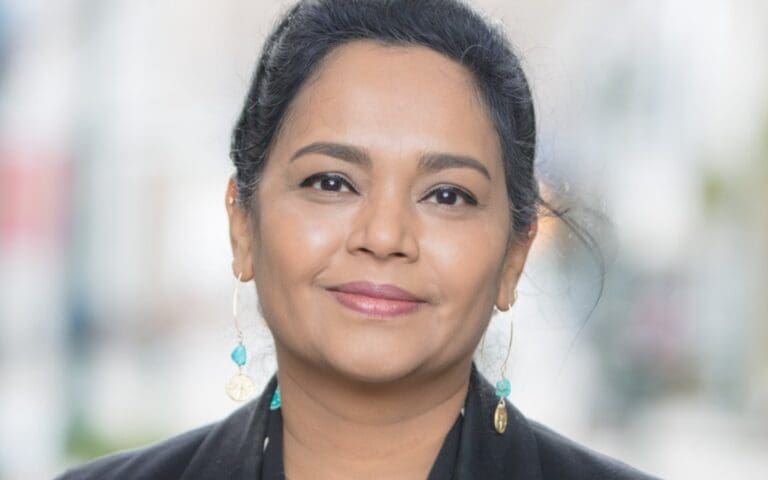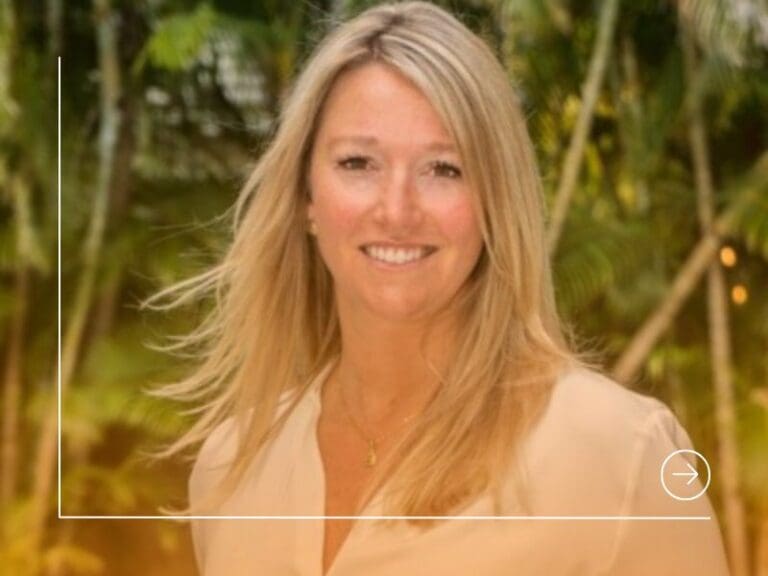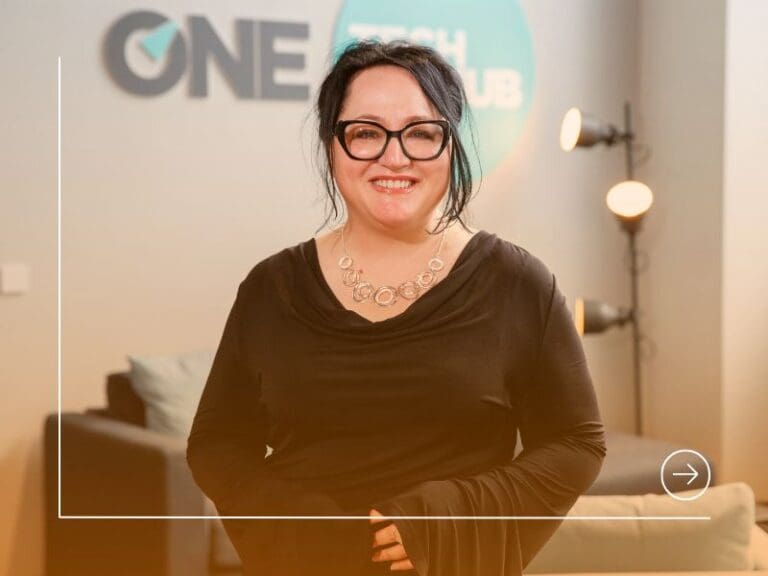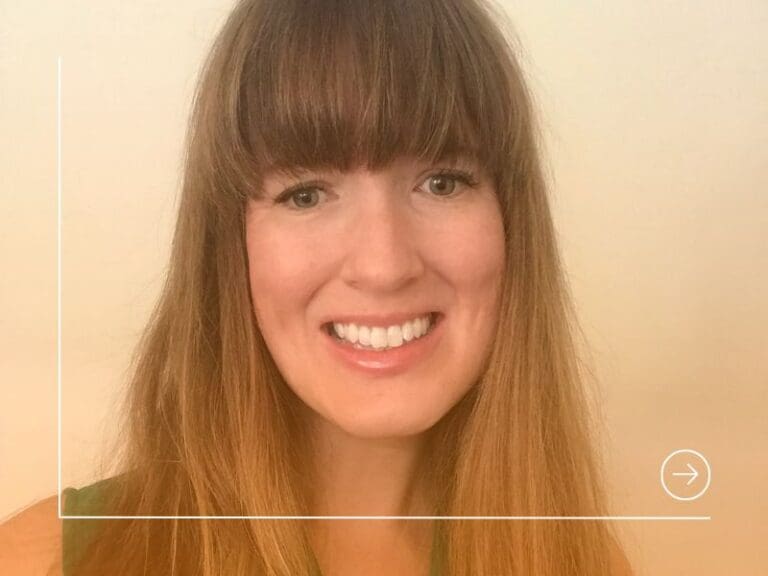Poornima DeBolle co-founded Menlo Security 10 years ago to focus on changing the security paradigm from the ‘whack-a-mole’ of detecting malicious activity to preventing it via unique isolation technology.
At Menlo Security, she is responsible for product management, engineering, service delivery, and customer support. Prior to this, Poornima worked at Juniper Networks, joining via its acquisition of Altor Networks. Poornima started her cybersecurity career at Check Point Software, where she held product management, business development, and engineering roles. In 2022, Forbes listed Poornima as a ‘50 over 50’ entrepreneur and she featured in the Top 25 Women Leaders in Cybersecurity by The Software Report. In 2023, Poornima was included in the Inc. Female Founders 200 list.
How did you land your current role? Was it planned?
In 2013 I co-founded Menlo Security with Amir Ben-Efraim. Amir and I have worked together for more than 20 years. As we surveyed the security landscape after we left Juniper, we felt there was a gap in the market, we had the audacious ambition to change the security paradigm from detect and respond to prevention. To deliver on our ambition, we pioneered our unique Isolation technology which protects millions of users at highly security-conscious organisations. We continue to innovate on top of our Isolation Core. We recently launched our first AI-powered phishing prevention. Unlike many security vendors, we are proud to have remained a privately owned company, growing through investment and organic growth. In 2020, we announced $100 million in series E funding with a company valuation of $800 million.
What are the key roles in your field of work, and why did you choose your current expertise?
I am responsible for ‘all things product’ and ‘all things security’! I oversee an amazing team of around 300 people responsible for all of the engineering and service delivery. My role includes overseeing an entire process right from the product management team identifying what we should be building, and the pain points we want to solve for our customers, to the post-product journey, including customer support. I am also responsible for Menlo Security’s own security, with our CSO reporting to me. We have to make sure our own house is in order before we can secure anyone else’s.
Did you (or do you) have a role model in tech or business in general?
I have been inspired by the women in my own family and by other role models in the industry, including a former boss and female engineer. I hope that I can also be a role model for women in technology, and engineering in particular.
We need more women role models, but we also need the support of men in the industry to become our allies and create environments where women in tech feel supported.
What are you most proud of in your career, so far?
Helping to take Menlo Security from just an idea to a leader in its field has made me very proud. When I was growing up in India and with ambitions early on to be a doctor, I made the decision to pivot and go to engineering school instead. I moved to the US for my master’s degree in computer engineering. I have worked for some amazing security companies and along the way met people who challenge me and make me better every day.
What does an average workday look like for you?
The good news is that I don’t have an average workday, but when I look across weeks some patterns start to emerge. I prioritise customer meetings above all, so I will have anywhere between three to four customer meetings or follow-ups in a week. In this post-pandemic, distributed/hybrid work environment, regular staff meetings, check-ins with my team and my peers, and skip-levels ensure that we are all working towards the same goal. When I am not travelling, the rest of my week is filled with partner meetings, productisation, engineering architecture reviews, and customer deployment and support discussions. As I am describing my week, I realise that I should bake in some fun time.
Are there any specific skills or traits that you notice companies look for when you’re searching for roles in your field?
In addition to the relevant skills in coding, research, knowledge of the security landscape, etc., Menlo Security and other companies like us are looking for problem solvers, creative thinkers, and employees who take the initiative to continuously make things better. Leadership is another trait I look for in all levels of the organisation. It is not just people who have been in large organisations, but every employee can lead and make a difference.
Has anyone ever tried to stop you from learning and developing in your professional life, or have you found the tech sector supportive?
My experience has been a positive one on the whole. I have been encouraged and inspired. However, I think as female founders and entrepreneurs in tech we still face challenges. Even in places like Silicon Valley, it is still hard for women who lead and/or start their own businesses to get funding.
This is changing as we see women-run VC firms, but we can do more to inspire women and support them in their ambitions.
I believe this starts early on at school where girls often self-select out of maths and STEM subjects – we need to create a nurturing environment.
Have you ever faced insecurities and anxieties during your career, and how did you overcome them?
I think everyone experiences insecurities during their career, but it is about being confident in your abilities. While you can be clear in your ambition, I would also advise being open to change and new ideas that could take you in another direction. Life and career are not linear and new opportunities should be embraced. A younger me may not have thought about starting a company, but my passion for creating the best products and for being part of that creative process has led me here. I am very proud of what we have achieved and that our vision has become a reality.
Entering the world of work can be daunting. Do you have any words of advice for anyone feeling overwhelmed?
Yes, it can be overwhelming when you are onboarding to a new job. However, we are all engineers and are trained on how to break down big problems into smaller problems and start knocking them down. My advice would be to take the same approach – step back, understand the lay of the land, prioritise what you need to learn, and dig in. You will learn a lot and it will be fun.
Last but not least, don’t be afraid to ask for help.
Especially in a start-up, everyone is moving fast, but don’t let that stop you from reaching out to your manager, the architect, or your peers.
What advice would you give other women wanting to reach their career goals in technology?
Often, I have seen women hold back their input and opinion. It happens to me even to this day where I am hesitant to provide input, especially when it is counter to the general sentiment of the room. I would encourage women to participate, offer your opinion, but at the same time, if your opinion was not incorporated, don’t perceive it negatively to the extent that it inhibits future participation. Be thoughtful, be bold, and recognise that you earned the seat at the table.








